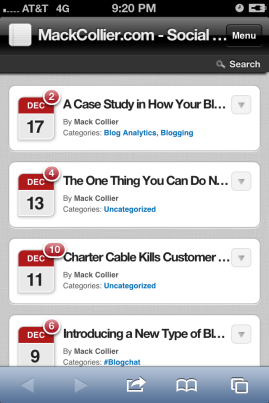And it’s the same reason why I don’t like most group blogs: I want to hear from the HOST, not the guests.
Right now I am putting together a marketing plan for Think Like a Rock Star. A big part of that plan is obviously to have a huge launch. The idea is to sell a ton of books right when the book launches in order to make all those bestseller lists, etc etc etc.
But another part of that plan (that’s even bigger, IMO) is how can I create a continuous stream of value-added material that compliments the book? The idea is to find a channel that lets me create content that will not only benefit readers of the book, but that will hopefully encourage others to buy the book.
And one of the potential channels I am looking at is launching a podcast. But what I’m noticing is that more and more people are launching podcasts, which I think is awesome. I love it when people give their audiences multiple ways to consume content, and in ways that’s convenient for their audience.
But…the one thing I don’t like about most podcasts is they mostly follow the same format: 1-2 people are the regular hosts, and each episode they interview someone. What I don’t like about this format is that it doesn’t give me much of a chance to hear from the hosts themselves. The focus is on the guests, and off the hosts. I see the same thing on group blogs, especially group blogs that start out being written by one person who then goes to a group blog format. The blog loses its voice.
Personally, I prefer podcasts that are run by 1-2 hosts, and guests are the exception, rather than the rule.
What do the rest of you think? Do you like podcasts? And if so, what type do you think? Do you love the format where hosts interview a guest every episode, or do you prefer ones with the hosts only and no guests?
Length? 5 minutes? 10? 15? Please let me know what your thoughts are as it will help me decide if I launch a podcast for Think Like a Rock Star, and what its format will be. Thank you!













